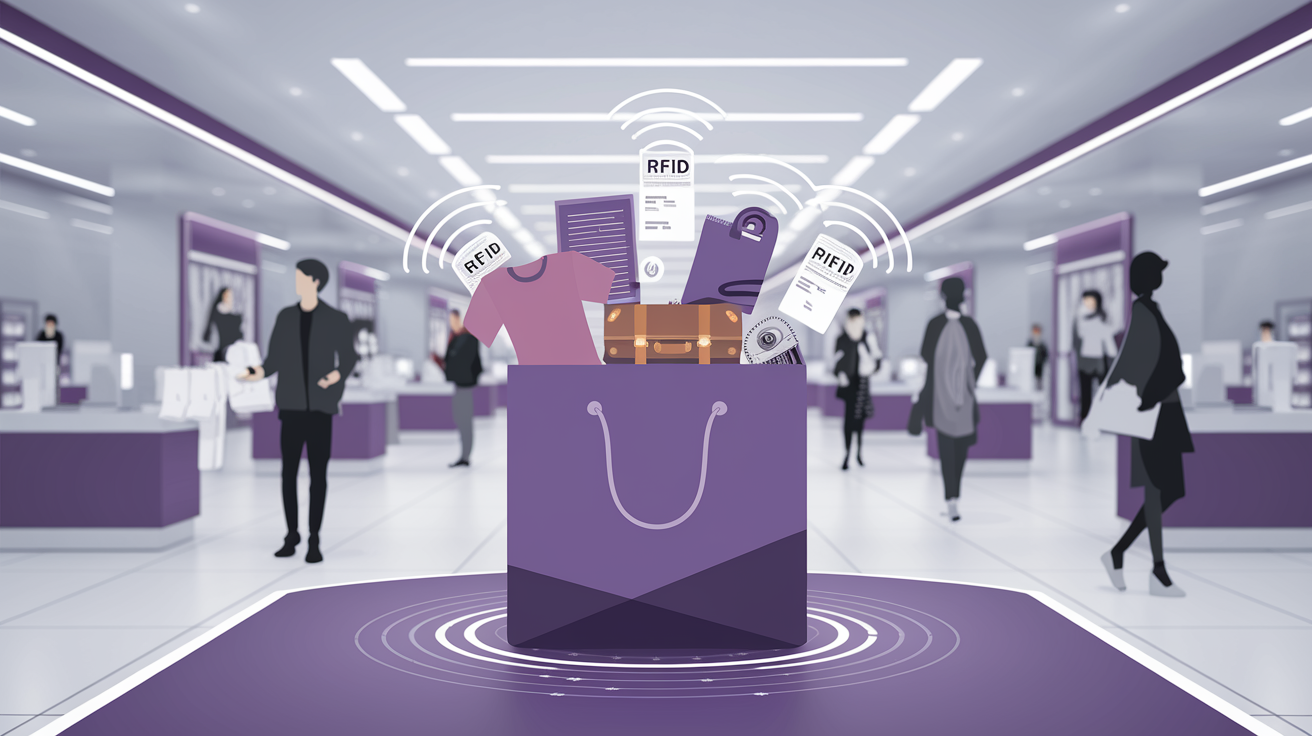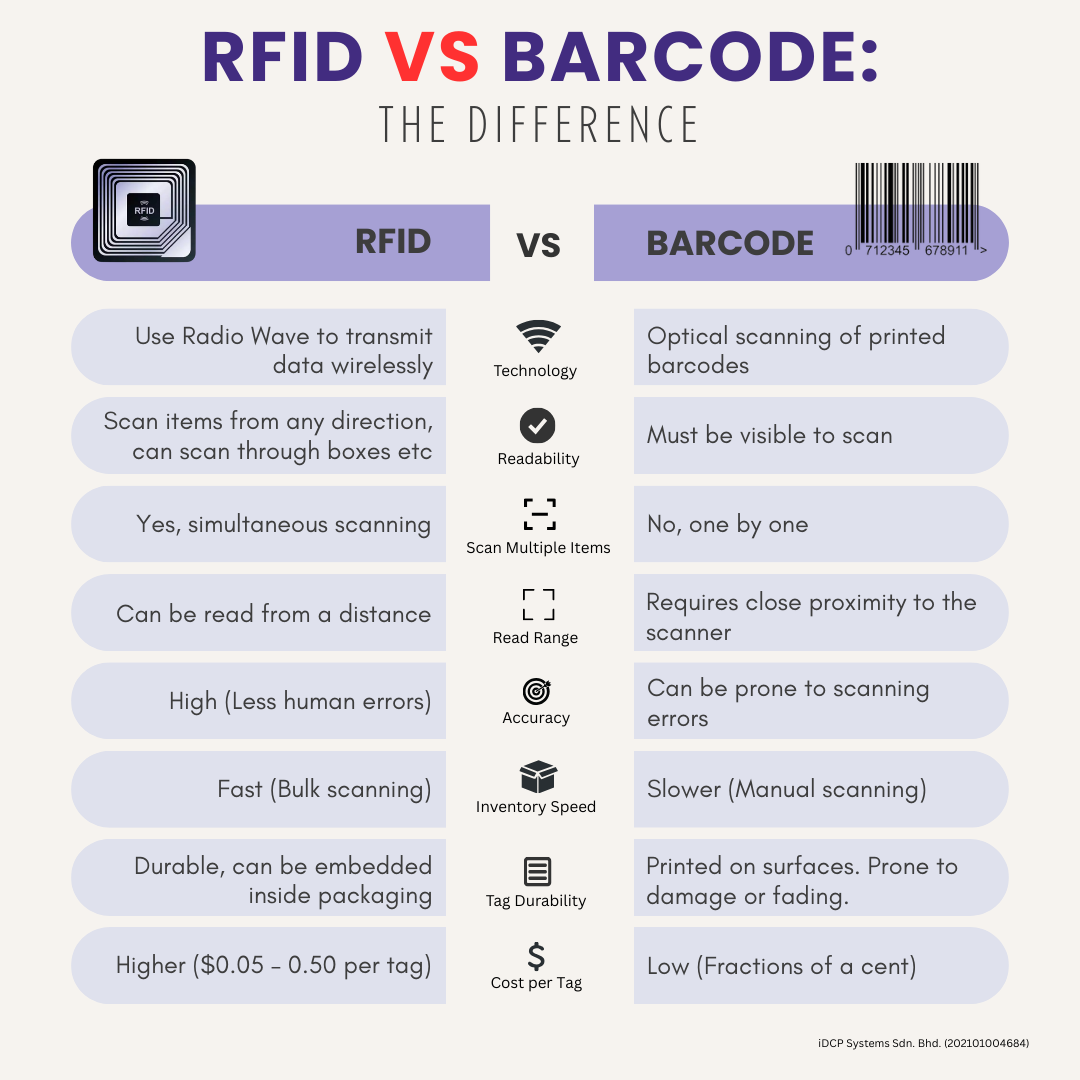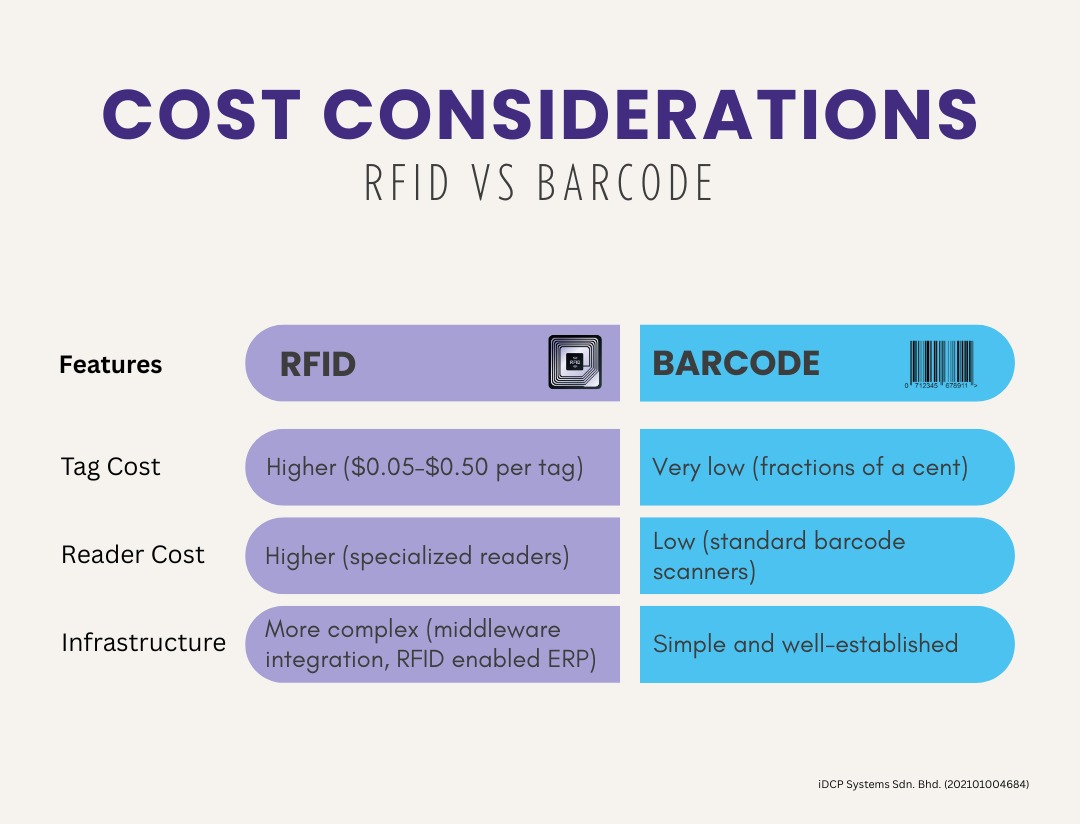RFID or Barcode? A Practical Guide to Choosing the Best Inventory Solution

Radio-Frequency Identification (RFID) is transforming how distributors and retailers manage inventory, track products, and improve operational efficiency.
Unlike traditional barcodes, which require line-of-sight scanning, RFID uses embedded microchips that communicate wirelessly via radio waves.
This advancement enables real-time product tracking, boosting accuracy, reducing theft, and enhancing both shopping and operational experiences.
RFID vs. Barcodes – What’s the Difference?
RFID and barcodes are important in retail and wholesale distribution business. Knowing their differences helps you choose the right technology for your business.
Here’s a quick comparison:
1. Technology
2. Readability
3. Scan Multiple Items
4. Read Range
5. Accuracy
6. Inventory Speed
7. Tag Durability
8. Cost Per Tag

RFID in Distribution and Retail: Key Advantages
1. Real-time Inventory Management
RFID enables distributors and retailers to scan entire shelves or pallets within seconds, even without unboxing. This drastically reduces errors and time spent on manual counts, resulting in more accurate inventory and faster replenishment cycles.
💡 Ideal for: Large-scale retailers, warehouses, and distributors managing complex product lines.
2. Reduced Shrinkage and Theft Prevention
RFID tags can trigger alarms when products exit without proper checkout, offering a robust defense against theft—a key benefit for businesses handling high-value or theft-prone items.
3. Streamlined Order Fulfillment
Faster picking and packing with RFID reduces delays in processing, improving customer satisfaction—especially for retailers using stores as fulfillment hubs.
4. Compliance and Recall Management
RFID makes it easier to identify and remove recalled products from shelves or warehouses, ensuring compliance and minimizing disruption.
Who Should Consider RFID?
High-value or theft-prone products:
- Electronics, fashion, and luxury goods are perfect candidates for RFID due to their susceptibility to theft.
Need for real-time inventory visibility:
- RFID offers live updates, ensuring distributors and retailers have up-to-date information on stock levels and product movement.
Scalability and automation:
- RFID supports businesses aiming to scale operations or integrate automated processes such as unmanned stores or smart shelves.
Why Barcodes Still Matter
Barcodes remain a reliable and cost-effective solution, especially for small to medium businesses or simpler inventory needs.
- Cost-effective for SMEs: Barcode tags and scanners are inexpensive and easy to deploy.
- Simplicity: No complex infrastructure needed — perfect for straightforward inventory tracking.
How to Implement RFID in Your Business
1. Purchase RFID Tags – Attach microchips to products.
2. Select RFID Readers – Choose handheld, fixed, or overhead scanners.
3. Upload Product Data – Assign and input product info linked to each tag.
4. Integrate with POS & ERP Systems – Enable real-time tracking and quicker checkout.
5. Test and Optimize – Run pilot tests to fine-tune performance and ensure accuracy.
Cost Considerations for RFID vs. Barcodes:
1. Tag Cost
2. Reader Cost
3. Infrastructure

Is RFID the Right Fit for Your Business?
Both RFID and barcodes offer unique advantages depending on your business size and needs.
RFID is ideal for larger operations or distributors and retailers dealing with high-value products, complex inventories, or those looking to streamline and automate operations. On the other hand, barcodes remain a cost-effective, reliable option for businesses with simpler inventory needs.
Ready to optimize your inventory and operations?
Contact iDCP Systems today https://wa.me/60129379260 or visit our official page www.idcp.my.



